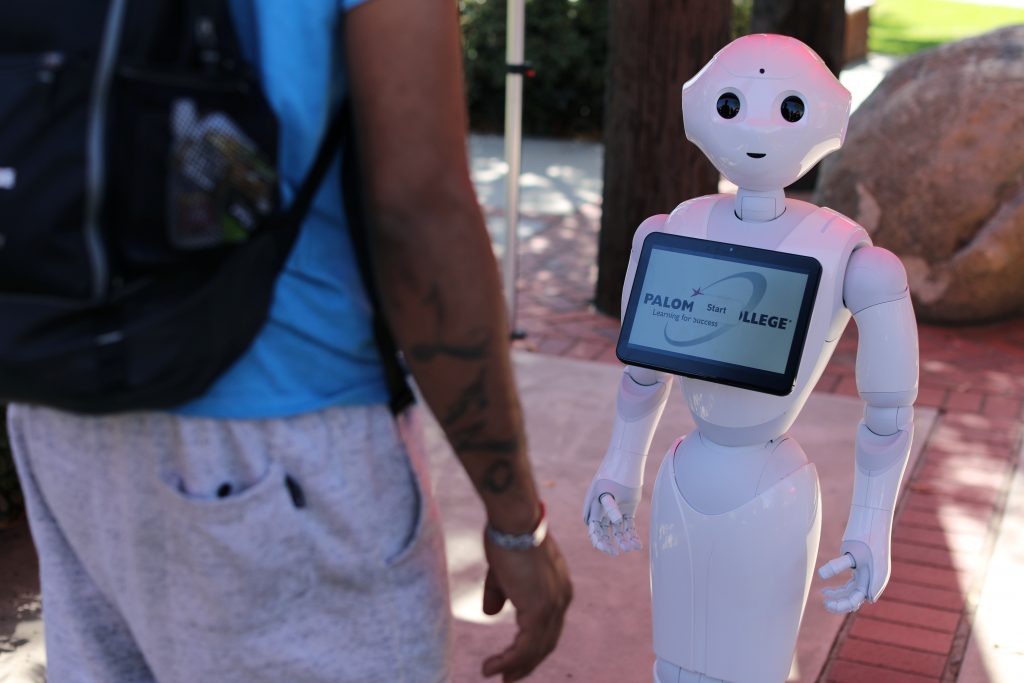Data analytics and automated robotic processes – two concepts that have become business game-changers.
copyright by www.moneyweb.co.za
 Data analytics and automated robotic processes – two concepts that have become business game-changers. Just how far can artificial intelligence (AI) take us in ensuring that we maintain levels of compliance and ensure efficiency in the world of tax?
Data analytics and automated robotic processes – two concepts that have become business game-changers. Just how far can artificial intelligence (AI) take us in ensuring that we maintain levels of compliance and ensure efficiency in the world of tax?
Tax technology is the new normal in enabling the business process, improving efficiencies in the integrity of critical data sets and acting as a safety net during business interruption. Increasing the integrity of data ensures that it can be used for diagnostic reviews and to provide definitive tax solutions for businesses.
Tax compliance? Software can enable the tax function through robotic process applications (RPAs). Business risk management and control frameworks can therefore be automated to collate real-time information to provide businesses and tax reviewers with dashboards of reliable information.
For tax practitioners, capacity and resource planning is a critical aspect in the tax life cycle. Prescribed timelines provided for in the Tax Administration Act must be adhered to. Pegging key milestones based on the alternative dispute resolution process can help the tax practitioner to act within the prescribed timelines and for the taxpayer to keep abreast of the developments in the dispute resolution process.
Volume submissions, including bottlenecked deadlines, can include provisional tax filing, employer tax declarations and Vat submissions due simultaneously – with RPAs ensuring accurate transfer of data and extrapolation for specific disclosures, with minimal manual intervention.
Through customised automation and interface of an organisation’s enterprise resource planning (ERP), the submission of tax and related declaration information, and the ultimate upload onto the Sars easyFile platform, should be less of the focus. Time is well spent when resources are in a position to free their time to focus on more risk management aspects (such as whether specific fringe benefits are being included in remuneration, subject to employees’ tax withholding).
AI for global mobility
Thank you for reading this post, don't forget to subscribe to our AI NAVIGATOR!
Globally mobile employees require specific tax reporting and disclosure in multiple jurisdictions. Lack of tracking of travel associated with physical presence in a jurisdiction can create tax risks for the business. For example, creation of potential permanent establishment risks for corporate income tax purposes can be triggered by the physical presence of an employee in a specific jurisdiction. Building AI to inform the physical presence of an employee can trigger specific red flags for business through an automated process, thereby assisting businesses to reduce potential tax risk.[…]
read more – copyright by www.moneyweb.co.za


Data analytics and automated robotic processes – two concepts that have become business game-changers.
copyright by www.moneyweb.co.za
Tax technology is the new normal in enabling the business process, improving efficiencies in the integrity of critical data sets and acting as a safety net during business interruption. Increasing the integrity of data ensures that it can be used for diagnostic reviews and to provide definitive tax solutions for businesses.
Tax compliance? Software can enable the tax function through robotic process applications (RPAs). Business risk management and control frameworks can therefore be automated to collate real-time information to provide businesses and tax reviewers with dashboards of reliable information.
For tax practitioners, capacity and resource planning is a critical aspect in the tax life cycle. Prescribed timelines provided for in the Tax Administration Act must be adhered to. Pegging key milestones based on the alternative dispute resolution process can help the tax practitioner to act within the prescribed timelines and for the taxpayer to keep abreast of the developments in the dispute resolution process.
Volume submissions, including bottlenecked deadlines, can include provisional tax filing, employer tax declarations and Vat submissions due simultaneously – with RPAs ensuring accurate transfer of data and extrapolation for specific disclosures, with minimal manual intervention.
Through customised automation and interface of an organisation’s enterprise resource planning (ERP), the submission of tax and related declaration information, and the ultimate upload onto the Sars easyFile platform, should be less of the focus. Time is well spent when resources are in a position to free their time to focus on more risk management aspects (such as whether specific fringe benefits are being included in remuneration, subject to employees’ tax withholding).
AI for global mobility
Thank you for reading this post, don't forget to subscribe to our AI NAVIGATOR!
Globally mobile employees require specific tax reporting and disclosure in multiple jurisdictions. Lack of tracking of travel associated with physical presence in a jurisdiction can create tax risks for the business. For example, creation of potential permanent establishment risks for corporate income tax purposes can be triggered by the physical presence of an employee in a specific jurisdiction. Building AI to inform the physical presence of an employee can trigger specific red flags for business through an automated process, thereby assisting businesses to reduce potential tax risk.[…]
read more – copyright by www.moneyweb.co.za
Share this: